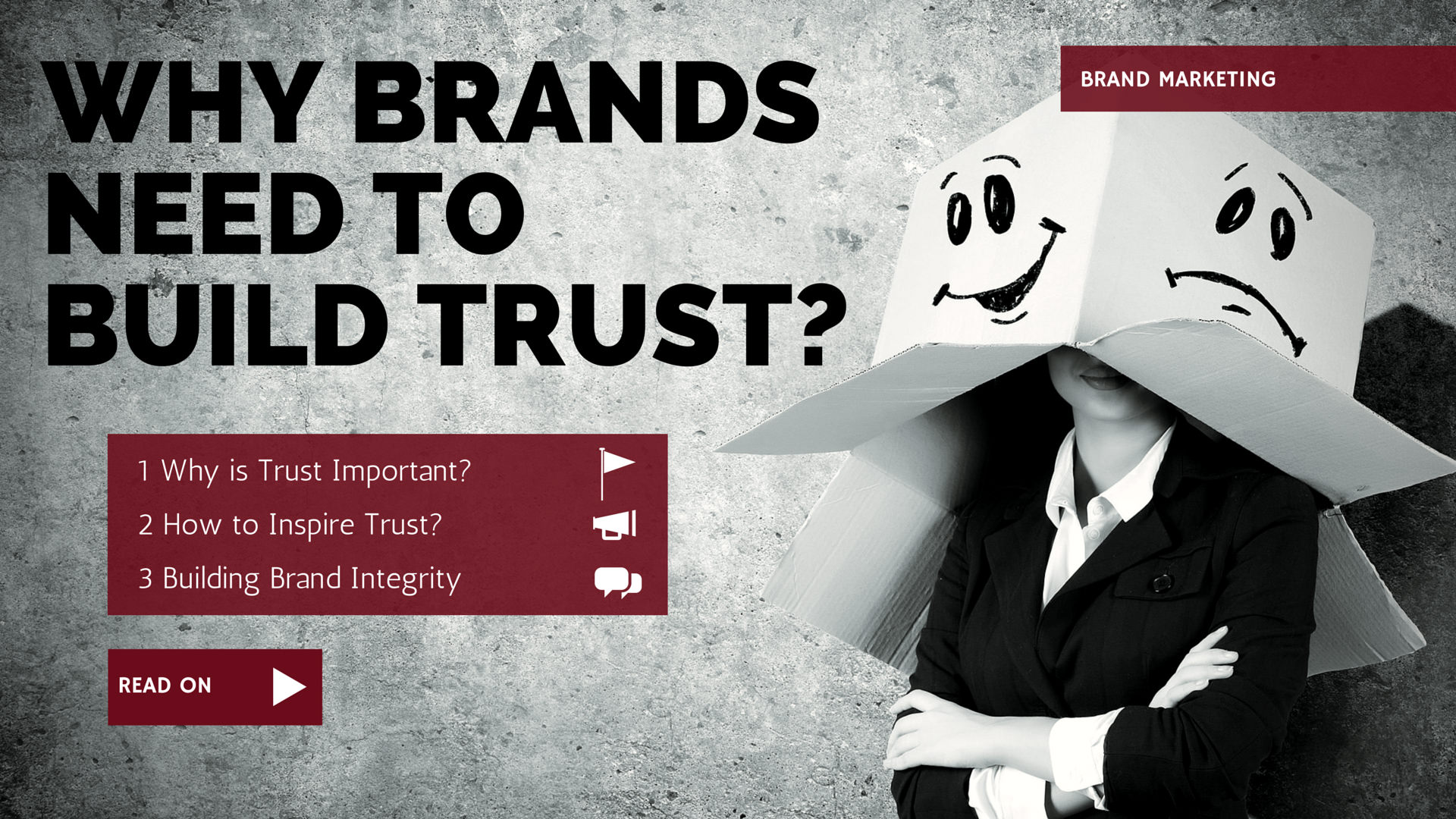Why is Trust Important?
Trust or consumer confidence acts as a criterion to judge the status of a brand. Where there is trust, there is a sense of security and assurance in the minds of the consumers. Once a consumer begins to trust a brand, the bond between the customer and the company is strengthened like never before. This makes the consumer more receptive to the services of the brand. In other words, the brands gain a greater control of the consumer's preferences once it is able to create a sense of trust.The important thing to understand here is that trust is not a one-time deal. It is a gradual, continuous process that requires boundless effort and perseverance on part of the brand. Once the brand loses focus on building the trust, the consumer confidence will soon fade away. In other words, maintaining the trust is absolutely essential. Once confidence is lost, especially when it comes to consumers, it is near impossible to have it retrieved.
How to Inspire Trust?
Inspiring trust in the consumer's mind requires a great deal of patience, planning and persistence. Marketing officials and entrepreneurs need to plant the seeds of trust in the minds of the consumers and patiently watch the seed develop. It is all about building a brand that is based on values. People are no longer simply interested in products. They seek the value that the product and its brand have to offer. For instance, when selling a dining table, you are not aiming to sell a simple wooden product, but rather a warm and cosy family dining experience. Brand values such as these please consumers and help you to establish trust in their hearts.If you are looking to build trust, you need to let your reputation speak for yourself. This is called Reputation Marketing, and it is instrumental to getting the consumers on your side. Authenticity, quality, safety and transparency are some of the business values that enhance your business reputation. Your brand marketing strategy must be formulated in accordance to thee values.
Building Brand Integrity
Building brand integrity is a core component of Reputation Marketing. It's not simply about reaching out to the consumers and giving them reasons to relate to your product. When you are asking someone to buy something from you, you need to hand them a list of facts and figures that speak volumes about the quality of your product. This not only makes your product look more impressive, but it also adds to your integrity and transparency. Here are 4 ways in which you can uphold your brand integrity.1) Studies: Inform the consumers about studies that will grant them further reassurance about the effectiveness of your product.
2) Take Responsibility: It is on your shoulders to ensure that the consumers feel absolute guilt free and safe about using your product. Let them know that you are accountable for their satisfaction by complying with all the international quality standards.
3) Labels: These will act as symbols of accolades that your product has earned over the years. For instance, when a consumer reads a product label that says, "Elected Product of the Year", he or she becomes more confident about choosing this product over everything else.
Focus on Consumer Emotion
Communicating with the consumers in eloquent language and feeding them with facts and figures are not the only ways to let trust grow in their hearts. As an entrepreneur or a marketing official, you need to tap into the minds of the consumers and understand the complexities of consumer emotion. This is important if you want your consumers to buy your product out of desire rather than necessity.A part of your marketing strategy should focus on allowing consumers to relate your products with their personal experience. The perfect example of this would be selling a children' energy drink to a mother. If you want to truly acquire the attention of a mother, then you have to do a lot more than simply telling her about the health benefits of your energy drink. Narrate to her a story that will touch her heart and melt her emotions. Put her in a scenario where she will realize that your energy drink creates a difference in her child's life. Talk to her about the nights before exams, and how her child could greatly benefit from your energy drink that will provide the impetus in the child's mind to stay up all night and study. Parables such as these will compel the mother to reach out to your product.
Social Media and Trust Building
Where does social media come into play in the field of brand trust building? Well the reality of the situation is that social media is at the heart of every brand marketing strategy there is today. If building trust is all about allowing the consumers to feel close to a brand, then social media is undoubtedly the best place to start.Social networks allow direct communication with the consumer to obtain their opinion. This enhances the transparency of the brand. Answering the queries of the consumers through social media is the first step to gaining their confidence. Besides, social media allows you to keep the consumers engaged with your product. This is in fact a superb way to maintain trust.
By opening up a social media account and having updated listings on review sites, you give consumers platforms to interact with your brand, which acts as a great way of improving transparency and ultimately consumer confidence.




